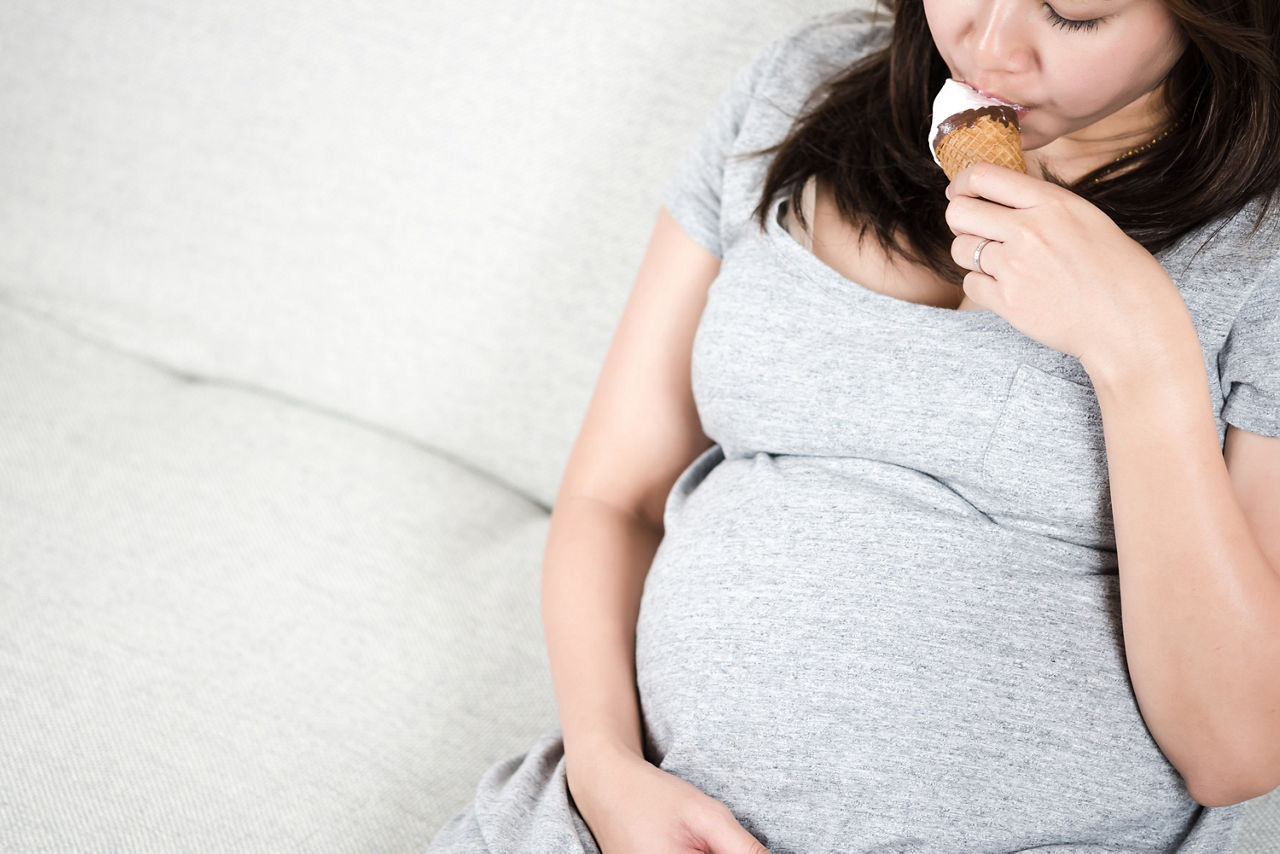Breastmilk is the best for babies. The World Health Organisation recommends exclusive breastfeeding for the first six months of life. Unnecessary introduction of bottle feeding or other food and drinks will have a negative impact on breastfeeding. After six months of age, infants should receive age-appropriate foods while breastfeeding continues for up to two years of age or beyond. Consult your doctor before deciding to use infant formula or if you have difficulty breastfeeding.
- Week 1
- Week 2
- Week 3
- Week 4
- Week 5
- Week 6
- Week 7
- Week 8
- Week 9
- Week 10
- Week 11
- Week 12
- Week 13
- Week 14
- Week 15
- Week 16
- Week 17
- Week 18
- Week 19
- Week 20
- Week 21
- Week 22
- Week 23
- Week 24
- Week 25
- Week 26
- Week 27
- Week 28
- Week 29
- Week 30
- Week 31
- Week 32
- Week 33
- Week 34
- Week 35
- Week 36
- Week 37
- Week 38
- Week 39
- Week 40
Don’t I Need Sugar During Pregnancy?
Craving for ice kachang or red velvet cake? That’s all great, but candy and sweet treats do little for you and your baby during pregnancy. Don’t give up on all sweet snacks though – there are healthy ones that can provide you with essential nutrients while satisfying your sweet tooth!
Ever wondered why we sometimes feel sleepy and lethargic after a good lunch? Most sugary foods and drinks are made with sucrose, otherwise known as table sugar. This form of sugar releases energy quickly, causing blood glucose to spike and triggering a rapid release of insulin to absorb it. You might recognise this as a sugar rush, which is generally followed by a general feeling of tiredness1.
To avoid such dramatic slumps in energy – especially at work – keep your blood sugar stable with a low-sugar intake2. This will:
· result in a healthier pregnancy weight gain1
· reduce your risk of gestational diabetes3 and pre-eclampsia4
· reduce the risk of your baby becoming overweight later in life2
Understanding Gestational Diabetes
If your body don’t produce enough insulin to regulate the level of glucose in the blood, you may develop gestational diabetes3. This is a type of diabetes specific to pregnancy that tends to develop sometime after 20 weeks.
Gestational diabetes has been connected to higher birth weight babies. It can be managed if you keep a low-sugar diet to minimise any associated pregnancy or birth complications3. If your doctor or healthcare professional thinks you are at a higher risk of gestational diabetes, he may recommend a glucose tolerance test (GTT) for you at around 28 weeks3.
Factors that can increase your risk of gestational diabetes include5:
• Previously giving birth to a baby weighing more than 4.5 kg
• Having gestational diabetes in the past
• Having a grandparent, parent or sibling with diabetes
• Being of south Asian, black Caribbean or Middle Eastern origin
Minimise your likelihood of developing gestational diabetes by maintaining a healthy pregnancy weight. Opt for a low-sugar diet and exercise regularly1!
Healthy Alternatives to Sugary Foods
Singapore is a food paradise and we love our occasional sweet treats! However, it is best that you replace them with naturally sweet nutritious alternatives, especially during pregnancy. Instead of cakes, biscuits and sugary drinks, sink your teeth in:
· Fresh or frozen fruit, such as mango, pineapple, berries
· Carrot sticks
· Home-made popcorn
· Dried fruit or nuts, instead of sweets
· Carbonated water with added fresh juice, instead of sugary soft drinks
· Greek yogurt and berries, instead of ice cream
· Dried fruits like apricots or prunes
Tame your sugar cravings and opt for healthier sweet treats today!

Connect with our team of experts
We provide advice and support for you on your parenthood journey




